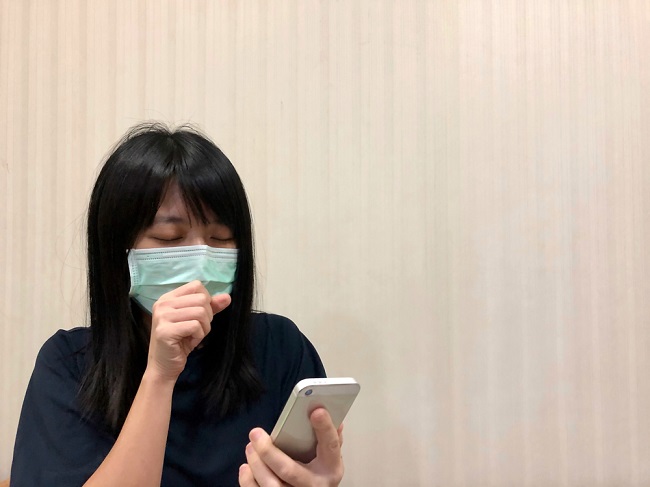Coughing after reading COVID-19 information? Maybe it's a psychosomatic disorder
Have you ever felt the symptoms of COVID-19, such as an itchy throat or shortness of breath, after reading news related to this rampant disease? Don't panic yet. It could be a psychosomatic disorder.
In the midst of the COVID-19 pandemic, information about this outbreak filled news sites and social media. Good news, such as news of patients who have recovered or the rise of humanitarian action to donate, may make you breathe easier.

However, if all you're monitoring is bad news or even scary, this can affect your mental state and trigger physical complaints called psychosomatic disorders.
Recognize What Psychosomatic Disorders are
Psychosomatic disorders can be interpreted as physical complaints caused or made worse by thoughts or emotions. Usually, this condition starts with stress, anxiety, fear, or depression.
However, make no mistake. Although it comes from the mind and emotions, it does not mean the physical complaints that occur are not real, you know. In psychosomatic symptoms, sufferers can really feel real physical complaints and need treatment, as well as other illnesses.
Physical complaints that arise in psychosomatic disorders can vary depending on the patient's illness. In psychosomatic disorders due to fear of the Corona virus, symptoms that can occur include coughing, shortness of breath, even fever.
What Causes Psychosomatic Disorders?
Although until now the exact cause is unclear, there are a number of things that are allegedly related to the emergence of this reaction. One of them is an increase in adrenaline and stress hormones.
When you are constantly reading bad news, such as the death of medical staff or the increasing number of patients who are positively infected by Corona virus, you may feel anxiety, fear, and stress.
This feeling will make your body think that you are in danger, then release the hormone adrenaline and cortisol. Naturally, both of these hormones are produced when the body feels threatened, for example when you are being chased by a dog. The aim is to increase the body's response to be ready to face danger.
However, if this hormone comes out when you are actually safe, you will actually feel complaints that you fear occur. In the case of Corona virus infection, you may feel short of breath, cough, or feel feverish, when in fact you are fine.
If you feel this symptom every time you read the news about COVID-19, it means that the current situation has affected your mental health. This is a very natural thing to happen in times like this, especially in times of physical distancing that might leave you feeling alienated from friends and lonely.
To calm your feelings, limit reading or looking for news about COVID-19 for a while. In his speech, the WHO leadership even advised us to look for news about this outbreak no more than 1-2 times a day. The news also needs to be ensured from a trusted source.
Instead of hearing or reading information that is unclear, you should focus on implementing preventive measures and doing positive activities at home, such as doing meditation, chatting with friends over the phone, consuming nutritious food, exercising, sunbathing, and getting enough sleep .
Psychosomatic symptoms can make you feel complaints similar to COVID-19 symptoms when you are actually fine. However, it doesn't hurt to check your health condition regularly, for example measuring your body temperature using a thermometer when you feel feverish.
Besides that, you can also try the Corona Virus Risk Check feature which is provided free by Alodokter to find out how likely you have been infected with Corona virus.
If you have questions, whether it's about symptoms or prevention of Corona virus, you can chat directly with the doctor on the Alodokter application. Through this application, you can also make an appointment with a doctor in the hospital.
Label : Health
Comments
Post a Comment